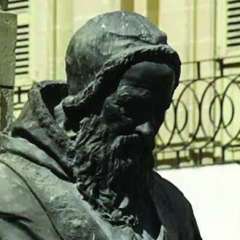David Brooks - The Benedict Option (iliti, hrišćanin i svet, čistunac i ironičar)
Оцени ову тему
-
Чланови који сада читају 0 чланова
- Нема регистрованих чланова који гледају ову страницу
-
Сличан садржај
-
"Why is the believing Catholic not subject to neurosis?" A question posed to Karl Jung in 1939
Од Bernard,
- 0 одговора
- 84 прегледâ
-
St Anselm of Canterbury (c1033-1109) – Bishop, Confessor, Doctor of the Church
Од Bernard,
- anselm
- canterbury
- (и још 6 )
- 1 одговор
- 82 прегледâ
-
- 6 одговора
- 191 прегледâ
-
- 0 одговора
- 134 прегледâ
-
- 0 одговора
- 172 прегледâ
-



Препоручена порука
Придружите се разговору
Можете одговорити сада, а касније да се региструјете на Поуке.орг Ако имате налог, пријавите се сада да бисте објавили на свом налогу.